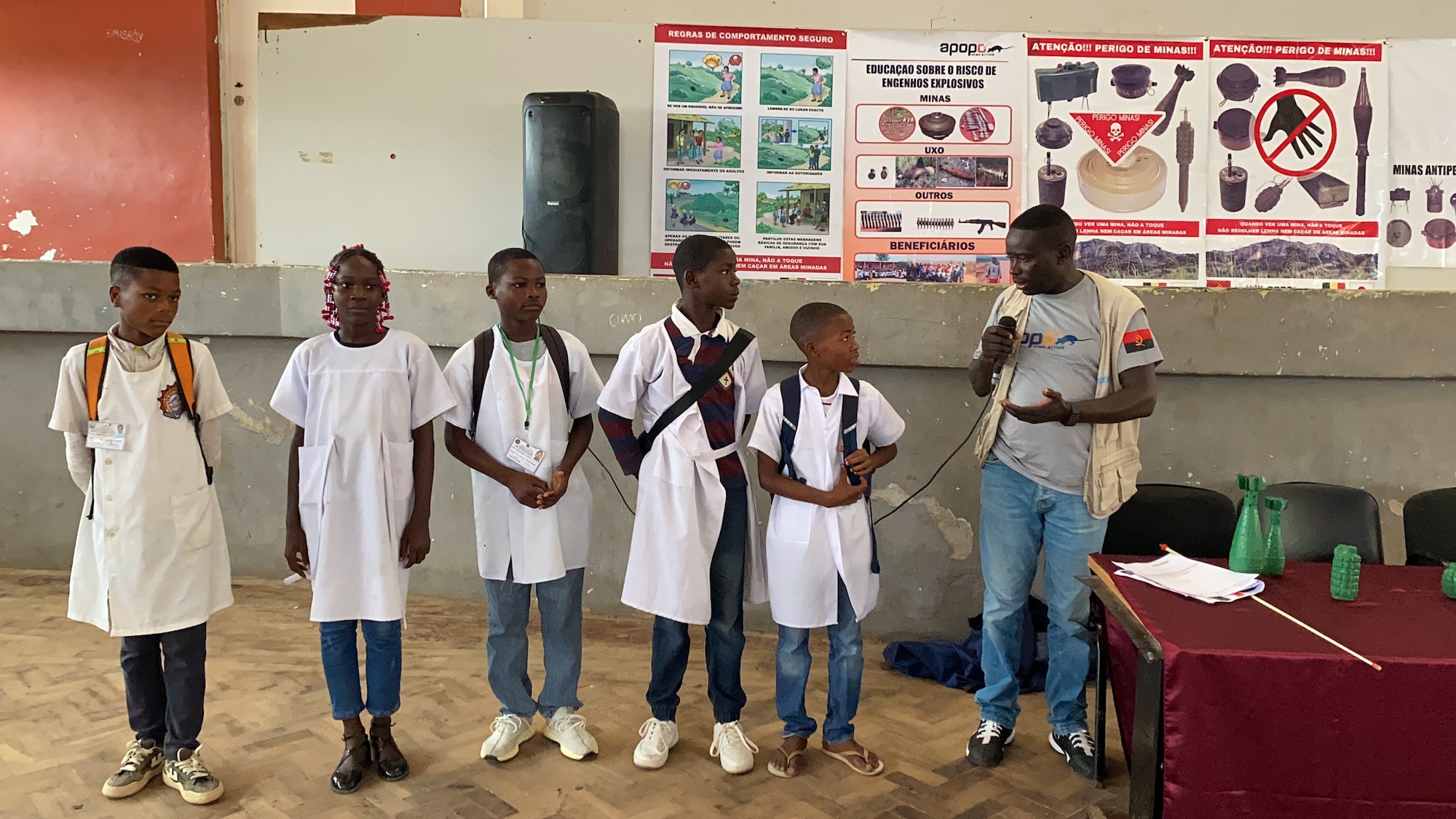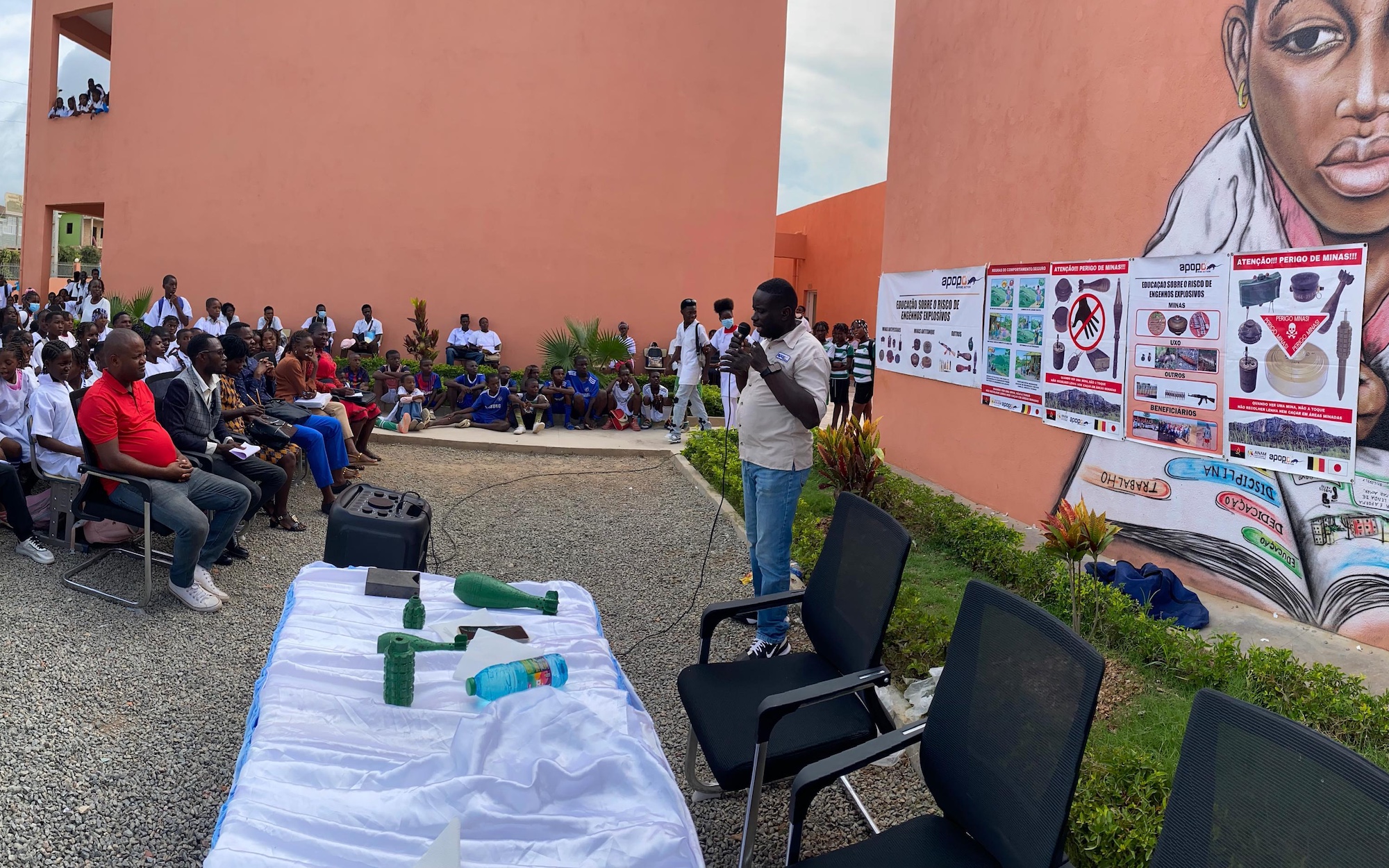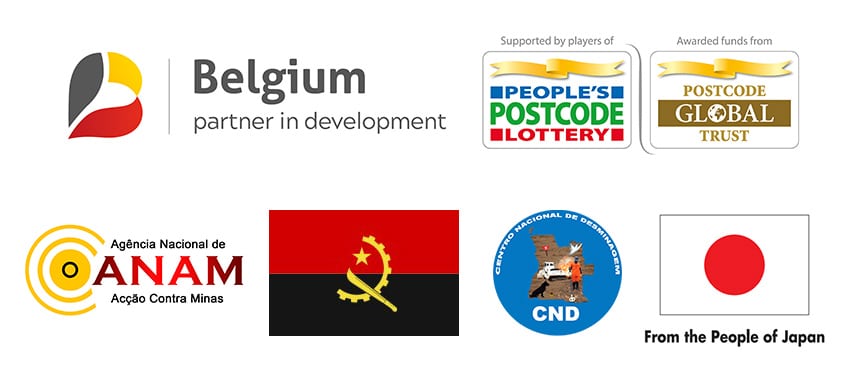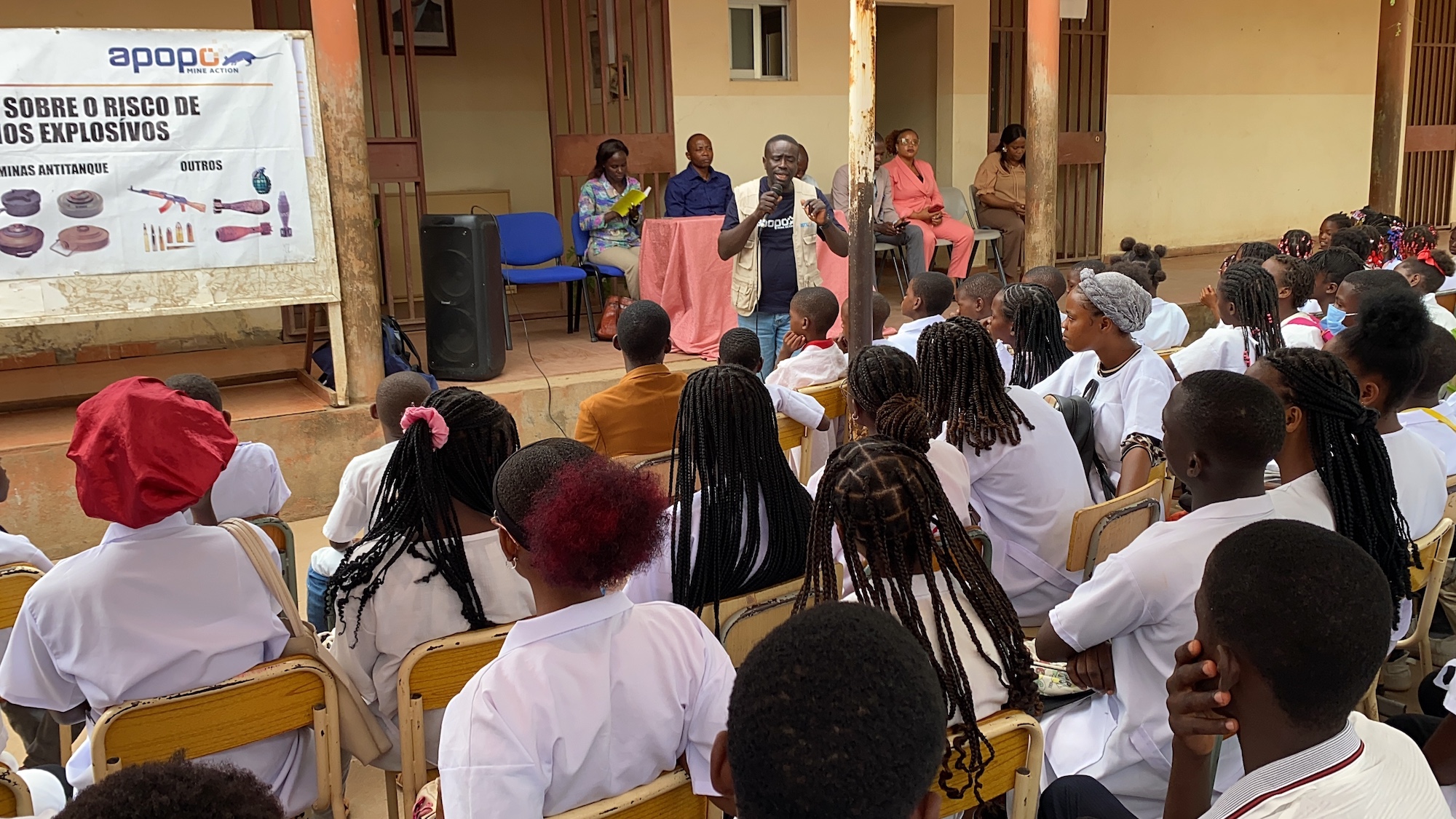Landmines and explosive remnants of war (ERW) remain a serious threat to communities in Angola, particularly in rural areas where farming and daily activities take place in potentially contaminated land. While APOPO’s HeroRATs and demining teams work to clear hazardous areas, mine risk education is just as critical in preventing accidents and saving lives.
As part of its ongoing efforts to support Angola’s journey to becoming mine-free, APOPO Angola recently conducted its first Explosive Ordnance Risk Education (EORE) activities of 2025, reaching an incredible 3,516 people in Sumbe, the capital of Cuanza Sul province. The events took place across three schools—Complexo Escolar do É-15, Complexo Escolar 14 de Abril, and Complexo Escolar Francisco José Ramos da Cruz—where students, teachers, and school staff learned how to recognize and safely respond to explosive threats in their communities.
Landmine Contamination in Angola
Angola is one of the most landmine-contaminated countries in the world, with remnants of its 27-year civil war (1975–2002) still affecting large areas of the country. These hidden dangers continue to claim lives, injure civilians, and restrict access to essential farmland, roads, and infrastructure.
Since 2012, APOPO has been working in Angola, deploying highly trained HeroRATs alongside human deminers to clear minefields efficiently and return safe land to communities. In 2024, APOPO cleared over 1 million square meters of suspected contaminated land in Cuanza Sul province, allowing families to safely farm, build homes, and move freely without fear. While mine clearance is essential, risk education is equally important, especially in areas where landmines may still be present.
Empowering Communities Through Mine Risk Education

APOPO’s Explosive Ordnance Risk Education (EORE) programs aim to reduce accidents by teaching people how to recognize, avoid, and report dangerous items they may encounter. This is particularly crucial for children, who are among the most vulnerable to mine accidents due to their curiosity and lack of awareness about the dangers posed by unexploded ordnance.
During the recent EORE sessions in Sumbe, APOPO’s risk education team provided interactive and engaging lessons tailored to school-aged children, using posters, demonstrations, and discussions to help participants understand:
- What landmines and unexploded ordnance (UXO) look like
- Why they are dangerous and where they might be found
- What to do if they encounter a suspicious object
- How to safely report potential explosive hazards
These sessions were led by António Kuti, APOPO’s Explosive Ordnance Risk Education Officer, with support from Airton Gândara, APOPO’s Information Management Assistant. Participants were encouraged to ask questions and share their own experiences, encouraging a better understanding of how they can protect themselves and their communities.
The Lasting Impact of Mine Risk Education

Angola has made significant progress in mine clearance, but many communities still live with the daily risk of explosive hazards. Programs like APOPO’s EORE sessions provide people with the knowledge they need to stay safe while clearance operations continue. By reaching over 3,500 people in just two days, these efforts will have a widespread impact, as participants share what they’ve learned with their families and neighbors.
This recent activity in Sumbe is part of a broader commitment by APOPO to deliver risk education in mine-affected countries. APOPO has carried out similar initiatives in Mozambique, Cambodia, and Zimbabwe, helping thousands of people learn life-saving information about the dangers of landmines and UXO. In these countries, risk education has been a critical component of national demining strategies, ensuring that even as clearance operations progress, communities remain informed and protected.
Looking Towards a Safer Angola
As Angola moves closer to becoming mine-free, APOPO remains dedicated to clearing land, educating communities, and preventing future tragedies. The combination of HeroRATs, expert deminers, and risk education programs ensures that people can reclaim their land safely and with confidence.
With continued support, APOPO will expand its EORE initiatives, reaching more schools, villages, and at-risk populations across Angola. Every mine cleared and every person educated brings Angola closer to a future where no one has to live in fear of hidden explosives.
APOPO’s life-saving work in Angola would not be possible without the generous support of our donors. We extend our heartfelt thanks to the Government of Belgium, the People of Japan, and the Players of the People’s Postcode Lottery for their commitment to making Angola mine-free and ensuring safer futures for communities across the country.
If you would like to be part of this vital mission, consider supporting APOPO today and help us continue clearing land and protecting communities from the dangers of landmines and unexploded ordnance.
APOPO Angola remains most grateful to its donors and partners who are
instrumental to the success of our landmine clearance program.


